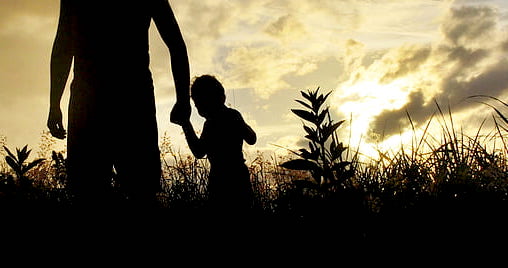
These divrei Torah were adapted from the hashkafa portion of Rabbi Yissocher Frand’s Commuter Chavrusah Series on the weekly portion: #1228 – Saved Miraculously from a Car Accident? Special Bracha? Good Shabbos!
The brothers threw Yosef into a pit on Reuvain’s advice (rather than kill him outright). Reuvain intended to come back to the pit and rescue Yosef. However, in Reuvain’s absence, the brothers decided to sell Yosef to traveling merchants. They first stripped him of the special robe his father had made for him and dipped it into the blood of a goat they slaughtered to make it look like Yosef was killed by a wild animal.
They sent the bloodied garment to their father and asked him to identify it. He recognized the garment and, as the brothers anticipated, concluded that his beloved son was torn up by a wild animal. The pasuk states that Yaakov ripped his garments, put on sackcloth, and went into an extended period of inconsolable mourning for Yosef.
The pasuk further relates: “All of his sons and daughters arose to comfort him, but he refused to be consoled. He said, ‘I will descend to the grave mourning my son’. And his father mourned for him.” [Bereshis 37:35]
At a recent Agudah Convention, Rabbi Noach Isaac Oelbaum from Queens told a story about a Rav from Eretz Yisrael. The story is related to this pasuk, and the commentary of the Ohr HaChaim haKadosh thereon.
The Ohr HaChaim haKadosh asks a question: When Yaakov’s children saw that Yaakov refused to stop mourning for Yosef, they were perplexed. They commented to themselves: Such behavior may be appropriate for a person who has just one son and that son dies, or perhaps even someone who just has a few children – then perhaps a father might go into a deep and inconsolable mourning after witnessing the (almost) total devastation of his family.
The Ohr HaChaim wonders what it was that Yaakov’s children said to him to try to comfort him and concludes that they did not say anything. Rather, they did something which they thought should provide a source of comfort to Yaakov by itself: “All of his sons and daughters arose to comfort him…” They assumed that the very gathering together of the large family including the many surviving children and grandchildren who were still part of Yaakov’s legacy would itself bring their father a source of consolation and comfort. They came as eleven remaining sons, and an equal number of daughters (for with each Tribe, according to the Medrash, a twin daughter was born). Imagine the scene. Yaakov is there, inconsolable. He can’t find nechama. The family suggest to one another: Do you know what we will do? We will gather everyone together. All the sons, all the daughters, all the grandchildren. Yaakov will look up at this throng of people, and that will be his nechama. A person with such a large family should not be so distressed over the disappearance of just one of his sons.
The plan did not work. Yaakov refused to be comforted even by this scene. Yosef was clearly Yaakov’s favorite son. Yaakov saw in him something that he did not see in any of the other children, and even the large remaining family could not compensate for the loss of the irreplaceable eldest son of his beloved wife Rochel.
This was part of a story told by Rabbi Oelbaum at an Agudah Convention: There was a Rav in Eretz Yisrael who spoke between Mincha and Ma’ariv during the week of Parshas VaYeshev. The Rav repeated this interpretation of the Ohr HaChaim haKadosh, and then he concluded: “And this is the way the Ribono shel Olam feels. There are thousands and thousands of people who are religiously observant Jews, and who are learning Torah. Especially in Eretz Yisrael, there are large and growing communities full of Shomrei Torah and Lomdei Torah – tens of thousands of people! But the Ribono shel Olam looks and sees how many sons are lost and how many daughters are lost. Therefore, the fact that there are tens of thousands of people learning and being Shomrei Torah u’Mitzvos does not console Him. The Ribono shel Olam weeps for every Jew that is not Shomer Torah u’Mitzvos.
That was the Rav’s drasha in Eretz YIsrael for Parshas VaYeshev. Just like Yaakov wept and kept on weeping for his son Yosef because he was lost, so too the Almighty weeps for every Jew who is lost.
There was a Jew in shul that evening, apparently a neighbor of the Rav, who was not a Shomer Mitzvos. Despite the Rav’s many attempts to be mekarev this person and to have influence on him, nothing helped. That night, this Jew came to shul because he had Yahrtzeit, and he heard the Rav’s drasha that the Ribono shel Olam weeps over every Jew that is “lost” like Yaakov wept over Yosef. He came over to the Rav after Ma’ariv and asked “Do you mean that the Ribono shel Olam cries for me, that he weeps over me because I am not a Shomer Mitzvah?”
The Rav said, “Yes, precisely. The Ribono shel Olam cries profusely over every lost Jew, and you are such a lost Jew. Hashem considers every Jew to be one of his children,, and just like Yaakov would not be consoled over one of his children who was lost, that is the way it is with Hashem’s mourning over his lost children. He keeps on weeping.”
That apparently touched this Yahrtzeit observer in the right place, and he became a Chozer B’Teshuva. Little by little, he found the way back home. He started becoming a Shomer Shabbos, and today he is already a full Shomer Torah U’MItzvos.
Transcribed by David Twersky; Jerusalem [email protected]
Technical Assistance by Dovid Hoffman; Baltimore, MD [email protected]
This week’s write-up is adapted from the hashkafa portion of Rabbi Yissochar Frand’s Commuter Chavrusah Series on the weekly Torah portion. A listing of the halachic portions for Parshas Vayeshev is provided below:
- # 034 – Chanukah Licht on Erev Shabbos
- # 076 – Katlanis: The Twice Widowed Woman
- # 125 – Ha’Malbim P’nei Chaveiro: Shaming Another
- # 172 – The Complex Issue of Child Custody
- # 218 – Grape Juice and Yayin Mevushal
- # 262 – Yichud and the Open Door Policy
- # 308 – Secular Studies
- # 352 – “Chamar Medina” — Used for Kiddush?
- # 396 – Artificial Insemination Before Chemotherapy
- # 440 – Third Night of Chanukah but Only Two Candles
- # 484 – The Ubiquitous Donor Plaque
- # 528 – Sending Someone on a Fatal Mission
- # 572 – Determining Paternity
- # 616 – Chanukah – Women Lighting for Husbands
- # 660 – Birthdays – A Jewish Minhag?
- # 704 – Sparing Someones Humiliation
- # 748 – The Menorah – Inside The House or Outside?
- # 792 – Observing Shiva for Grandparents?
- # 836 – Katlanis: A Third Marriage
- # 880 – Lying For The Sake Of The Truth
- # 924 – Bitachon Vs Hishtadlus
- # 967 – Can Older Brother Object to the Younger Brother’s Engagement?
- #1011 – Davening with a Minyan on Chanukah vs Lighting On Time
- #1055 – Can You Kill Someone Who Hashem Doesn’t Want To Die?
- #1098 – Doing A Mitzvah in Face of Sakana
- #1141 – Business Partnerships With Non-Jews
- #1184 – Holding the Kiddush Cup – Exactly How? Always?
- #1228 – Saved Miraculously from a Car Accident? Special Bracha?
- #1272 – V’sain Tal U’Matar: Some Fascinating Shailos
- #1316 – Endangering Oneself To Perform The Mitzvah of Kibbud Av
- #1360 – Showing Favoritism Amongst Your Children
- #1404 – Is Grape Juice As Good As Wine For Kiddush And Other Halachos?
- (2019) – MaOz Tzur and Its Traditional Tune – Not as Kosher as You Might Think
A complete catalogue can be ordered from the Yad Yechiel Institute, PO Box 511, Owings Mills MD 21117-0511. Call (410) 358-0416 or e-mail [email protected] or visit http://www.yadyechiel.org/ for further information.


